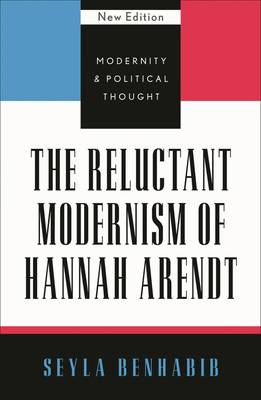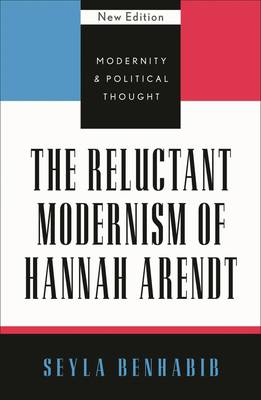
- Afhalen na 1 uur in een winkel met voorraad
- Gratis thuislevering in België vanaf € 30
- Ruim aanbod met 7 miljoen producten
- Afhalen na 1 uur in een winkel met voorraad
- Gratis thuislevering in België vanaf € 30
- Ruim aanbod met 7 miljoen producten
Zoeken
Omschrijving
Interpreting the work of one of the most influential thinkers of the 20th century, The Reluctant Modernism of Hannah Arendt rereads Arendt's political philosophy in light of newly gained insights into the historico-cultural background of her work. Arguing against the standard interpretation of Hannah Arendt as an anti-modernist lover of the Greek polis, author Seyla Benhabib contends that Arendt's thought emerges out of a double legacy: German Existenz philosophy, particularly the thought of Martin Heidegger, and her experiences as a German-Jewess in the age of totalitarianism. This important volume reconsiders Arendt's theory of modernity, her concept of the public sphere, her distinction between the social and the political, her theory of totalitarianism, and her critique of the modern nation state, including her life long involvement with Jewish and Israeli politics.
Specificaties
Betrokkenen
- Auteur(s):
- Uitgeverij:
Inhoud
- Aantal bladzijden:
- 320
- Taal:
- Engels
- Reeks:
Eigenschappen
- Productcode (EAN):
- 9780742521506
- Verschijningsdatum:
- 1/07/2003
- Uitvoering:
- Hardcover
- Formaat:
- Genaaid
- Afmetingen:
- 152 mm x 235 mm
- Gewicht:
- 589 g

Alleen bij Standaard Boekhandel
+ 508 punten op je klantenkaart van Standaard Boekhandel
Beoordelingen
We publiceren alleen reviews die voldoen aan de voorwaarden voor reviews. Bekijk onze voorwaarden voor reviews.







